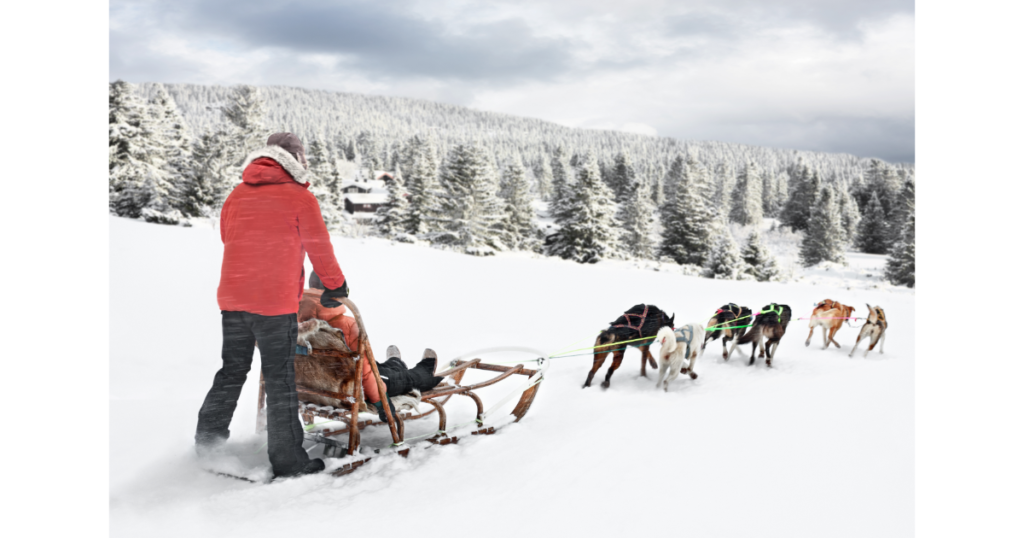The snowy season is a challenge for electric fence owners. Buried wires can become frozen and render the fence useless, or heavy snowfall can block the signal from reaching your dog’s collar receiver. Then this question pops up in your mind Do electric dog fences work in Snow?
For many dog owners, electric fences are an attractive option for keeping Fido safe in their yards. In-ground Electric fence creates a virtual boundary that gives a dog tactile feedback when getting close to the edge of the fence. Winter is a challenging season and you don’t want your dog to be lost or hurt. So that’s why it’s important to take a few steps before cold weather arrives.
In this blog post, we will share practical tips on how to ensure your pet stays within boundaries even when visibility is reduced by falling snow.
Table of Contents
ToggleFirst, let’s explore how these fences work. The basics of these systems include a transmitter and receiver collar worn by your dog. When the canine approaches the boundary set by the transmitter, an alert is triggered on their collar receiver to warn them to stay away from that area.
Will Deep Snow Disturb Electric Dog Fence Work?
When it comes to deep snow, these fences are largely unaffected. This is because the transmitters are usually located inside and not affected by weather conditions like rain or snow. That said, there are a few precautions you should take before winter arrives.
Firstly, if your system includes wires, ensure that fence wire is buried at least 6-8 inches below the surface of your yard so they don’t become frozen during cold weather. So regularly check for breaks in the wire that could occur due to shoveling or plowing activities winter installation dogwatch – if any part of the boundary line is incomplete, your dog may be able to slip through undetected. To avoid this, make sure to clear any snow on the ground near the fence line.
Are Electric Dog Fences Waterproof?
These fences are an effective and convenient way of keeping your pet safe. But one question many potential fence owners have is whether these systems are waterproof. After all, if you live in an area where it rains or snows a lot, you don’t want to risk your pet getting shocked accidentally.
The good news is that most electric dog fences are waterproof, meaning they won’t get short-circuited by rain or snow. Many of these systems have a coating around the wires that prevents water from seeping in and causing damage.
Furthermore, many of these systems have an IPX7 rating, which means they’ve been tested and proven to be waterproof in conditions up to 1 meter deep for 30 minutes for Best Dog Fence.
But just because your fence is waterproof doesn’t mean you can relax and neglect it during the winter months. How? Let’s take a look.
First, make sure your fence consists of high-quality equipment and the electric fence is up to date and working before the snow season arrives. As temperatures drop, battery life gets shorter, so inspect your system and make sure the battery is still strong and lasts throughout the winter. If you have an older model system, consider replacing it with a newer one that has a longer battery life and is more reliable.
Second, make sure the ground wire connecting your fence system is buried deep enough so it won’t be affected by heavy snowfall. Depending on how much snow accumulation you expect in your area, you may need to bury the wires several inches below the surface. It will also save the wires as the snow melts.
Third, if you have an outdoor run for your dog, make sure it’s enclosed with a physical fence that will keep them safe in case of a power outage or system Failure. The physical traditional fences will also provide extra security against intruders.
Does Electric Fence Shock Spread Through the Snow on the Ground?
The short answer is: yes and no. Yes, an electric dog fence is able to generate a signal that will pass through snow, but no, there needs to be some contact between the wires in order for it to work effectively. Snow acts as an insulator, meaning it can stop or greatly reduce the signal from reaching your dog’s collar receiver.
How Do electric dog fences work in Snow?
In order to keep your fence functional during Do electric dog fences work in Snow especially when snow accumulates, you’ll need to take a few extra steps. First, make sure that all wires are buried at least 6 inches deep so that they don’t freeze. You may also want to consider adding a layer of insulation around the wires in order to prevent them in frozen soil.
It’s important to make sure that there is some contact between the wires in order for it to work effectively. Snow acts as an insulator, meaning it can stop or greatly reduce the signal from reaching your dog’s collar receiver near Dog Fences.
Charger Placement
Charger placement is an important part of winter-proofing your electric fence. It’s best to place the charger as close to the ground as possible so that it doesn’t become covered in snow or ice, which can interfere with its effectiveness.
Then make sure that the charger and all wires are securely connected and that the wires are free from any damage. If you opt for a battery-operated charger, it’s important to keep an extra set of batteries on hand in case of a power outage or other emergency. This will ensure that your fence remains operational even during the most extreme winter weather where everything is snow-covered.
Conclusion
I am confident that With just a few simple steps, you can ensure that your fence is up-to-date and functioning properly during cold weather. When done correctly, winterizing your fence will help keep your pet safe in its yard all year round. So don’t wait—take the time to winterize your electric fence today!
Frequently asked question
Will an electric fence keep a big dog in?
Yes, they are an effective way to contain larger dogs and keep them from running away. This fence helps keep large dogs in, and when paired with a training program, it is even more effective at keeping them within the boundaries of your yard.
The electric fence creates an immediate warning system that will quickly alert you when your dog is approaching the boundary. With proper maintenance and training, electric fences are an excellent way to keep your large dog safe.
Is it hard to train a dog on an electric dog fence?
Most dogs can be easily trained. Start the process by introducing your dog to the boundary and fencing system. Give your dog plenty of time to explore, using positive reinforcement when they remain within the boundaries. Once observed, the dog understands the boundary and then gradually increases how close they are allowed to get to it while offering praise when they stay within the designated area. So they sense receiving rewards for staying away from the boundary.
What are the side effects of an electric dog fence for dogs?
Having an electric fence for dogs can have some potential drawbacks. In rare cases, your pet could get an electric shock if they come in contact with the wire and receive a mild electric current Electric Fence. This can cause discomfort to your furry friend and potentially lead to more serious injuries or even death if not monitored carefully.
Improper installation of the fence results in unstable or low voltage, which could cause your pet to experience a mild shock regularly. Finally, electric dog fences do not provide protection from external threats such as wild animals or intruders.
How long does it take a dog to get used to an electric dog fence?
It usually takes a few weeks for dogs to become accustomed to an invisible electric dog fences. During this period, owners must monitor and supervise their pet’s behavior to ensure they are not harmed or injured by the Best Dog Fence.
Owners should start with short training sessions and gradually increase the duration of each session as the dog gets more comfortable. During training, the owner should reward and praise their pet for positive behavior. It is also important to create a safe zone within the fence so that the dog has an area it can retreat to if needed. With proper training, most dogs will become comfortable with their electric fence within a few weeks Dog Fences.

How reliable are electric fences for dogs?
These fences can be a reliable and effective way to keep your dog contained in the yard even in heavy snow. When installed correctly, these fences will create a virtual boundary that gives off tactile feedback when approached by your cons of invisible electric dog. For maximum reliability, regular maintenance should be done to check for any breaks or interference from other devices nearby Electric Fence.
Additionally, during winter months extra care should be taken to ensure the buried wires are not frozen and that snowfall has not blocked the signal from reaching your dog’s collar receiver. With proper preparation and regular maintenance, it can be a practical solution to keeping your pet safe and secure.








